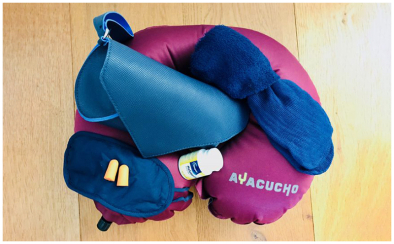
Posted by: Atlas Tours and Travels Pvt Ltd
Jet Lag Survival Guide: Tips for Beating the Travel Fatigue
Jet lag, that dreaded feeling of fatigue and disorientation
caused by traveling across multiple time zones, can put a damper on your trip.
But fear not! With a few practical tips and tricks, you can minimize the
effects of jet lag and make the most of your travel experience. Here's a guide
on how to survive jet lag:
Adjust Your Sleep Schedule: Start adjusting your sleep
schedule a few days before your trip. Gradually shift your bedtime closer to
the time zone of your destination. This can help your body adapt to the new
time zone more easily.
Stay Hydrated: Dehydration can worsen the symptoms of jet
lag. Drink plenty of water before, during, and after your flight. Avoid
excessive alcohol and caffeine, as they can disrupt your sleep patterns and
dehydrate you further.
Get Plenty of Rest Before Your Flight: Ensure you're
well-rested before your journey. A good night's sleep before your flight can
help reduce the impact of jet lag.
Choose Your Flight Strategically: Opt for a flight that
aligns with your destination's local time. If possible, choose overnight
flights, so you can sleep on the plane and wake up closer to your destination's
morning time.
Nap Smartly: If you feel the need to nap upon arrival,
keep it short and early in the day. Limit your nap to 20-30 minutes to avoid
disrupting your sleep pattern.
Stay Active: Engage in light exercise and stretching
during your flight. Take short walks in the cabin to improve circulation and
prevent stiffness.
Adjust to Local Time: As soon as you arrive at your
destination, adjust your activities and meals to the local time. Exposure to
natural light during the day can help reset your internal clock.
Avoid Heavy Meals and Stimulants: Opt for lighter meals,
especially during your first day in the new time zone. Avoid heavy or greasy
foods that can make you feel sluggish. Also, limit your intake of stimulants
such as caffeine and sugary drinks.
Stay Awake Until Bedtime: Fight the urge to sleep during
the day. Stay active and engaged until it's time to go to bed at a reasonable
local time. This will help your body adjust to the new time zone more quickly.
Consider Melatonin: Consult your healthcare provider
about using melatonin, a hormone that regulates sleep, to help adjust your
sleep patterns. It can be useful in combating jet lag, but it's important to
use it under professional guidance.
Remember, everyone's body reacts differently to jet lag, so
it's essential to listen to your own needs and adjust accordingly. By following
these tips and giving yourself time to adjust, you can minimize the effects of
jet lag and make the most out of your travel experience.
Safe travels and enjoy your journey!










